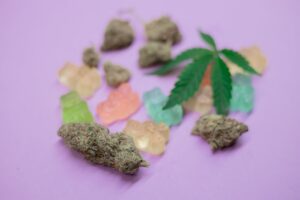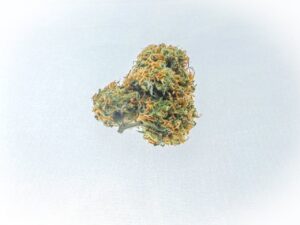Cannabis tinctures and oils are both popular options for incorporating CBD into your daily routine. While they share similarities in terms of extraction methods and ingredients, there are crucial differences that can impact their effectiveness. By understanding these nuances, you can find clarity amidst the noise of countless brands and products.
Table of Contents
ToggleUnveiling the Basics of CBD and Its Uses
Comprehensive Understanding of CBD
To fully grasp the differences between cannabis tinctures and oils, it is important to first gain a comprehensive understanding of CBD and its various applications. CBD, short for cannabidiol, is one of the many cannabinoids found in the hemp plant. It is extracted from the plant and used to create a range of CBD products.
Potential Therapeutic Benefits
CBD has gained significant attention due to its potential health benefits. Many individuals turn to CBD products as a natural alternative for managing various conditions such as pain, anxiety, insomnia, and inflammation. Research suggests that CBD may have anti-inflammatory, analgesic, anxiolytic, and neuroprotective properties.
Interaction with the Endocannabinoid System
CBD interacts with the body’s endocannabinoid system (ECS), which plays a crucial role in maintaining homeostasis. The ECS consists of cannabinoid receptors located throughout the body. When CBD is consumed or applied topically, it interacts with these receptors to potentially produce therapeutic effects.
Research on how exactly CBD affects the ECS is still ongoing, but initial studies suggest that it may help regulate pain perception, mood, sleep patterns, immune response, and more.
Understanding these fundamental aspects of CBD sets the stage for comparing cannabis tinctures and oils effectively. In the next section, we will delve into their specific characteristics and determine which option may be better suited for your needs.
Understanding the Difference Between CBD Oil and Tincture
Extraction Methods: How They Differ
CBD oil and tincture are both popular forms of consuming cannabidiol, but they differ in terms of extraction methods. CBD oil is typically extracted from hemp plants using a method called CO2 extraction. This process involves using pressurized carbon dioxide to extract the CBD from the plant material, resulting in a highly concentrated oil.
On the other hand, CBD tinctures are made by soaking hemp flowers or leaves in alcohol or a solvent. The alcohol extracts the cannabinoids from the plant material, creating a liquid form that can be consumed orally.
Varying Concentrations of CBD
Oils and tinctures also differ. CBD oils usually have higher concentrations of CBD compared to tinctures. Oils can contain anywhere from 15% to 25% CBD, making them more potent and suitable for individuals who require higher doses.
Tinctures, on the other hand, typically have lower concentrations of CBD ranging from 10% to 20%. This makes them ideal for individuals who prefer milder effects or want more control over their dosage.
Consumption Methods and Effects
The consumption methods for oils and tinctures also impact how quickly they take effect and how long those effects last. When you ingest an oil by swallowing it or adding it to food or drinks, it needs to pass through your digestive system before being absorbed into your bloodstream. This process can take up to an hour before you start feeling the effects, which can last for several hours.
In contrast, tinctures are usually taken sublingually by placing drops under your tongue. The thin tissues under your tongue allow for faster absorption into the bloodstream, leading to quicker onset of effects within 15-30 minutes. However, these effects may not last as long as those experienced with oils.
Exploring CBD Tinctures: What You Need to Know
Unique Characteristics of CBD Tinctures
CBD tinctures offer a unique way to consume cannabidiol (CBD). Unlike CBD oils, which are made by extracting CBD from the cannabis plant and diluting it with a carrier oil, tinctures are created by soaking the plant material in alcohol or another solvent. This process extracts the beneficial compounds from the plant, including CBD, resulting in a concentrated liquid form.
Different Carrier Liquids Used in Tincture Formulations
One key difference between CBD tinctures and oils lies in their carrier liquids. While oils typically use coconut oil or hemp seed oil as carriers, tinctures often incorporate different options. One popular choice is MCT oil, derived from medium-chain triglycerides found in coconut oil. MCT oil is easily digestible and can enhance the bioavailability of CBD, allowing for more efficient absorption into the body.
Versatility and Ease of Use of CBD Tinctures
CBD tinctures offer versatility and convenience for users. They come in small bottles with droppers, making it easy to measure out precise doses. This allows individuals to customize their dosage according to their specific needs. Tinctures can be taken sublingually by placing drops under the tongue for rapid absorption or added to food and beverages for a more enjoyable consumption experience.
An Introduction to CBD Oil: Key Information
Basics of CBD Oil Extraction Processes
CBD oil is derived from the cannabis plant through various extraction processes. One common method involves using solvents like ethanol or CO2 to extract the cannabinoids, including CBD, from the plant material. This process ensures that the final product contains high concentrations of CBD while minimizing the presence of other compounds.
Different Types of Carrier Oils Used in CBD Oil Products
CBD oil is typically mixed with a carrier oil to enhance its absorption and effectiveness. Common carrier oils include coconut oil, olive oil, and hemp seed oil. Hemp seed oil, in particular, is often used due to its nutritional value and potential health benefits.
Potential Health Benefits Associated with CBD Oil
CBD oil has gained popularity for its potential therapeutic properties. Research suggests that it may help alleviate symptoms associated with various conditions such as chronic pain, anxiety, epilepsy, and inflammation. Some studies indicate that CBD oil may have neuroprotective properties and could potentially be used as an adjunct treatment for certain neurological disorders.
Overall, CBD oil offers a natural alternative for individuals seeking relief from various health issues. It’s important to note that while research on the efficacy of CBD oil is ongoing, many people have reported positive experiences with its use.
Pros and Cons of CBD Oils and Tinctures
Advantages and Disadvantages of CBD Oils
CBD oils have several advantages worth considering. One major benefit is their versatility. CBD oils can be taken orally, added to food or beverages, or applied topically. This flexibility allows users to incorporate CBD into their daily routine in a way that suits their preferences. CBD oils are usually available in a wide range of concentrations, making it easier for individuals to find the right dosage for their needs.
However, there are some drawbacks to using CBD oils as well. One common concern is the taste. Some people find the natural flavor of CBD oil to be strong and unpleasant. Another potential disadvantage is the shelf life of CBD oils, which can vary depending on factors such as storage conditions and quality of ingredients.
Pros and Cons of CBD Tinctures
CBD tinctures also offer unique advantages. One key benefit is their fast-acting nature. When taken sublingually (under the tongue), CBD tinctures are absorbed directly into the bloodstream, allowing for quicker effects compared to other methods. Many people find that CBD tinctures have a milder taste compared to oils.
However, there are a few considerations. Unlike oils, tinctures typically come in lower concentrations, which may require larger doses for desired effects. Portability can also be a factor since tincture bottles may not be as convenient for on-the-go use compared to small oil dropper bottles.
Comparing Shelf Life, Taste, and Portability
When deciding between CBD oils and tinctures, it’s important to consider factors such as shelf life, taste preferences, and portability needs.
How to Properly Take CBD Oils and Tinctures
Different Administration Methods for CBD Oils and Tinctures
There are several administration methods you can choose from. One common method is sublingual administration, where you place a few drops of oil or tincture under your tongue and hold it there for about 60 seconds before swallowing. This allows the CBD to be absorbed directly into your bloodstream through the capillaries in your mouth.
Another option is adding CBD oil or tincture to your food or beverages. You can mix it into your morning smoothie, stir it into your coffee, or incorporate it into your favorite recipes. This method may take longer for the effects to kick in since the CBD has to pass through your digestive system first.
Topical application is also an option if you’re looking for localized relief. You can apply CBD-infused creams, lotions, or balms directly onto the affected area of your skin. The CBD will interact with cannabinoid receptors in the skin, providing targeted relief.
Proper Dosage Guidelines for Optimal Results
Determining the right dosage of CBD oils and tinctures can be a bit tricky since everyone’s body reacts differently. It’s best to start with a low dose and gradually increase until you achieve the desired effects. Pay attention to how your body responds and adjust accordingly.
It’s recommended to consult with a healthcare professional who is knowledgeable about CBD to help guide you in finding the appropriate dosage based on factors such as weight, metabolism, and specific health conditions.
Tips for Effectively Incorporating CBD into Your Daily Routine
Incorporating CBD oils and tinctures into your daily routine doesn’t have to be complicated. Here are some tips:
Cannabis Tincture vs Oil: A Comprehensive Comparison
Extraction Processes
Cannabis tinctures and oils are derived from the cannabis plant using different extraction processes. Tinctures are typically made by soaking cannabis flowers in a high-proof alcohol, such as ethanol, to extract the desired compounds. On the other hand, oils are often created by infusing cannabis with a carrier oil, such as avocado oil or medium-chain triglyceride (MCT) oil.
Bioavailability and Absorption Rates
Tinctures have an advantage over oils. The alcohol base used in tinctures allows for faster absorption into the bloodstream compared to oils. This means that tinctures may provide quicker results when consumed.
Taste and Convenience
Taste is another factor to consider when choosing between tinctures and oils. Tinctures often have a strong herbal taste due to the presence of terpenes from the cannabis plant. On the other hand, oils can be flavored or mixed with other ingredients to mask the natural taste of cannabis.
In terms of convenience, both tinctures and oils offer ease of use. They usually come in small bottles with droppers for precise dosing. However, tinctures may be more convenient for on-the-go use due to their compact size.
Potential Side Effects
Like any form of cannabis consumption, both tinctures and oils can potentially cause side effects. These may include dry mouth, dizziness, fatigue, or changes in appetite. It’s important to start with a low dosage and gradually increase if needed while monitoring how your body reacts.
Essential Factors to Consider When Choosing Between Tincture and Oil
Personal Preferences and Lifestyle
When deciding between cannabis tinctures and oils, it’s important to evaluate your personal preferences and lifestyle. Consider how you prefer to consume cannabis and what fits best with your daily routine. Some people may find the convenience of oil tinctures more appealing, as they can be easily added to food or beverages. On the other hand, if you prefer a more traditional method of consumption, alcohol-based tinctures may be a better choice.
Onset Time and Duration of Effects
Another factor to consider is the desired onset time and duration of effects. If you’re looking for fast-acting relief, tinctures are generally absorbed more quickly into the bloodstream compared to oils. This means that tinctures can provide more immediate effects. However, these effects may not last as long as those from oil-based products. If you’re seeking longer-lasting relief or a sustained effect throughout the day, oils might be a better option.
Dietary Restrictions or Sensitivities
It’s also important to take into account any dietary restrictions or sensitivities that may influence your choice between tinctures and oils. Tinctures are typically made using alcohol as a solvent, which may not be suitable for individuals with certain dietary restrictions or sensitivities. In such cases, oil-based products that use carrier oils like coconut oil as a base may be a safer alternative.
So, there you have it! We’ve explored the world of CBD tinctures and oils, delving into their differences, benefits, and considerations. Now, armed with this knowledge, you can confidently make an informed decision based on your specific needs and preferences.
Whether you opt for the fast-acting potency of a tincture or the versatility of an oil, remember that finding the right product is a personal journey. Consider factors such as bioavailability, convenience, and desired effects. Don’t be afraid to experiment and find what works best for you.
In the end, what matters most is that you’re taking steps towards improving your well-being. So go ahead, give CBD tinctures or oils a try and experience the potential benefits they may offer. Your journey to wellness begins now!
Are you on the lookout for high-quality Cannabis Tincture in Sacramento?
Your quest concludes at A Therapeutic Alternative, a leading dispensary that has been advocating for the rights of medical cannabis patients for over ten years. We’re more than just a dispensary; we’re a team committed to enhancing your overall health and wellness. Located in the vibrant heart of Midtown Sacramento, right in the medical district, our dispensary is perfectly positioned for your convenience. Step into our realm and discover our dedication to offering the finest Cannabis Tinctures and exceptional service.
We emphasize accessibility, ensuring our facilities are equipped to meet your needs. With an ADA lift and various parking solutions, including a convenient lot behind our building and complimentary street parking, your visit will be smooth and stress-free. Seize the opportunity to become part of a community centered on joy and wellness. Explore the rich spectrum of Cannabis Tinctures in Sacramento at A Therapeutic Alternative, or browse our online selection. Come visit us today and start your journey toward holistic well-being with our supportive team by your side!




